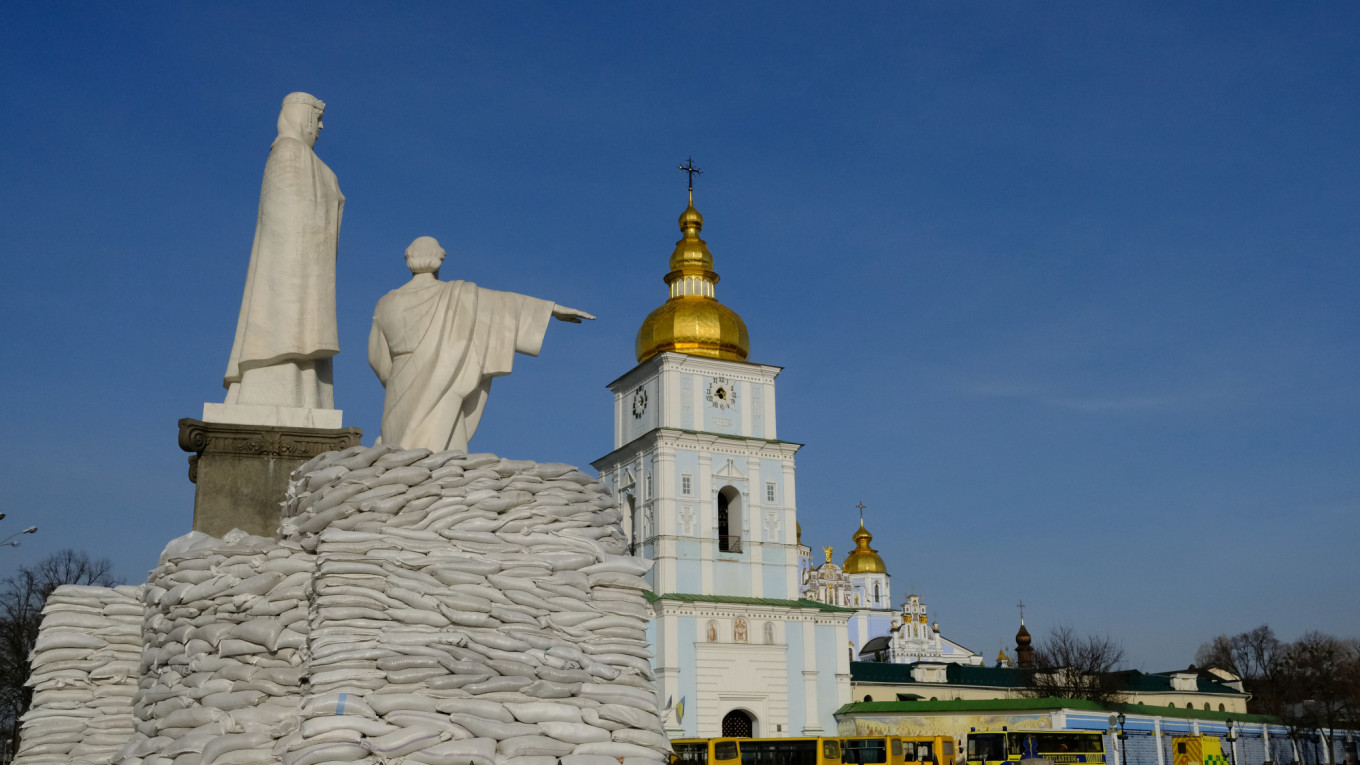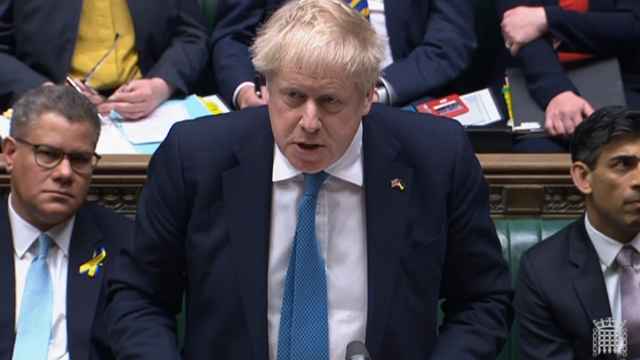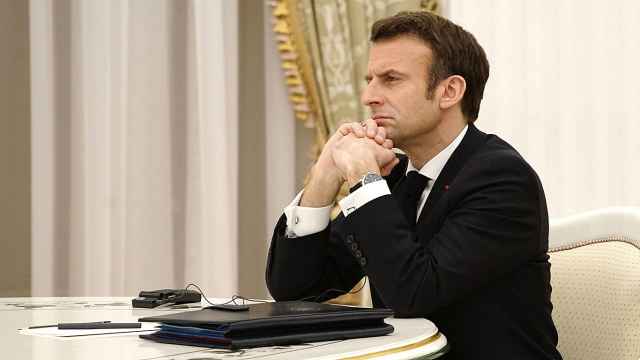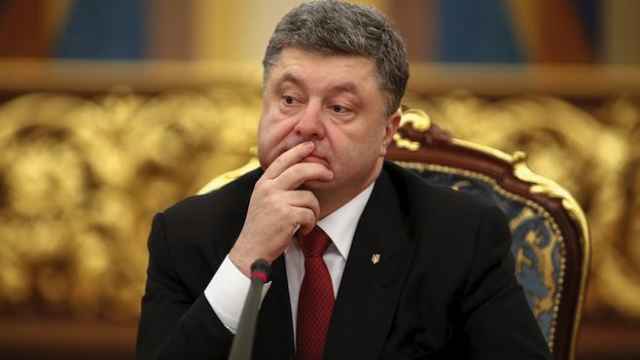Anton Shevtsov and his wife used to stroll through the Ukrainian capital of Kyiv so they could find the best place to listen to the battles raging between Russian and Ukrainian forces for the nearby towns of Bucha and Irpin.
The high ground of the old city was a great place to hear the war.
Shevstov, a 42-year-old engineer, quickly learned to distinguish between incoming and outgoing artillery, multiple-launch rocket systems, and air defense batteries.
“You recognize them by the sound,” Shevstov told The Moscow Times earlier this month. “The rocket systems give off a low, continuous rumble. What we are hearing now is outgoing artillery with some occasional anti-air fire.”
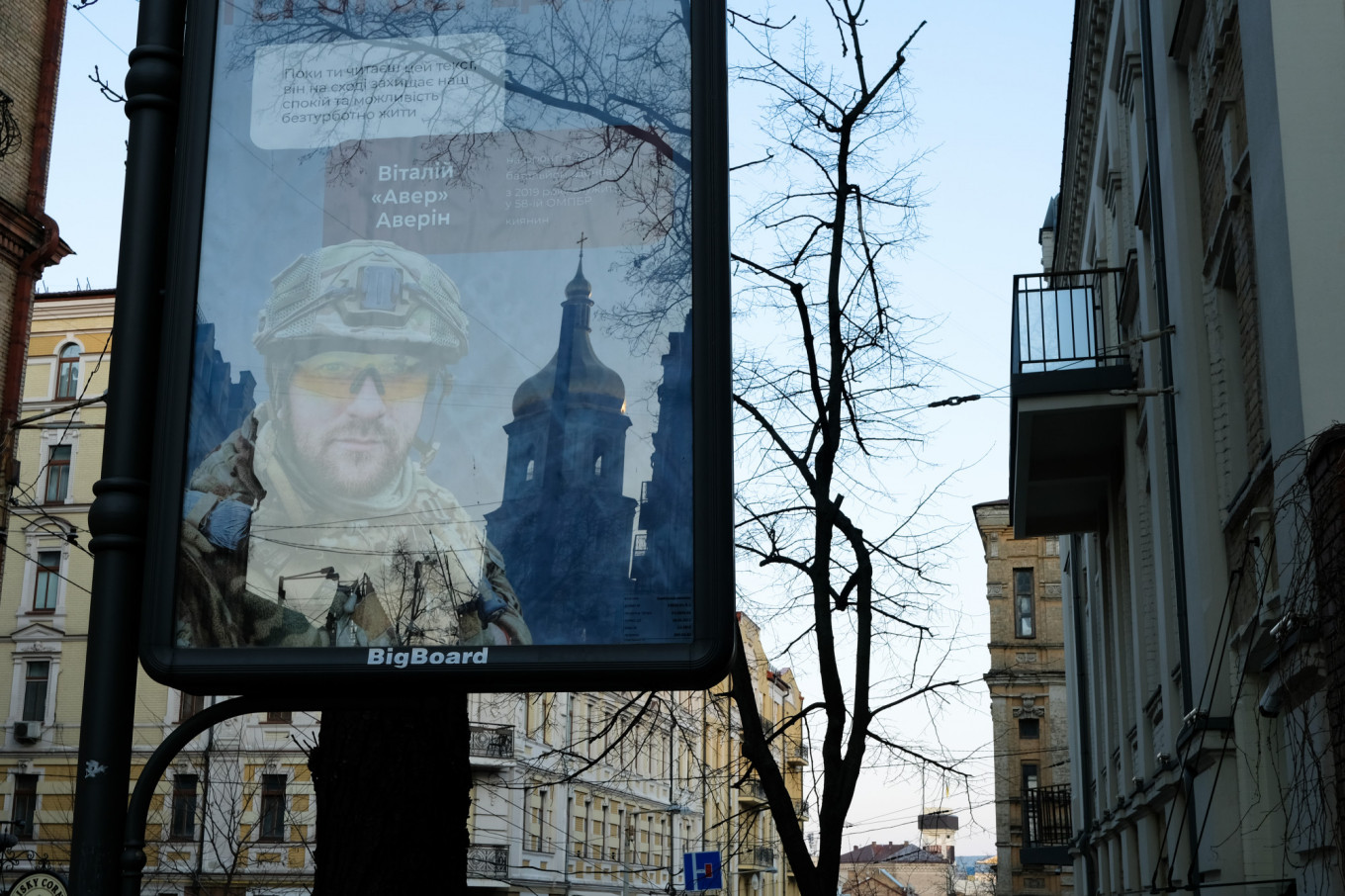
But the sound of battle has now faded from Kyiv. As Russian forces began pulling back from the capital last week, a semblance of normality has returned.
“Here at least everything is more or less clear,” said hairdresser Viktor Okhonko.
Choosing not to leave at the start of the Russian invasion, Okhonko, 36, initially tried to sign up for the Territorial Defense militia, but was turned away as recruiting offices were overwhelmed by volunteers in the first days of the war.
He has now joined a recently opened salon in central Kyiv, where a skeleton team strives to meet the demand for haircuts.
Alongside their usual work, Viktor’s salon doubles as a distribution point for humanitarian aid. High-end hair products share the shelves with buckwheat and condensed milk. Fashionable customers mix in the waiting area with pensioners taking a rest from the trek up the steep hill in search of food.
Some of the estimated two million residents of Kyiv who fled in early March appear to be returning to the capital as the threat from the Russian forces recedes.
Natalia Yaremchuk, 24, and her team at analogue photo laboratory Fotovramke recently decided to reopen their doors, and have seen overwhelming interest from Ukrainians who used their film cameras to document the war.
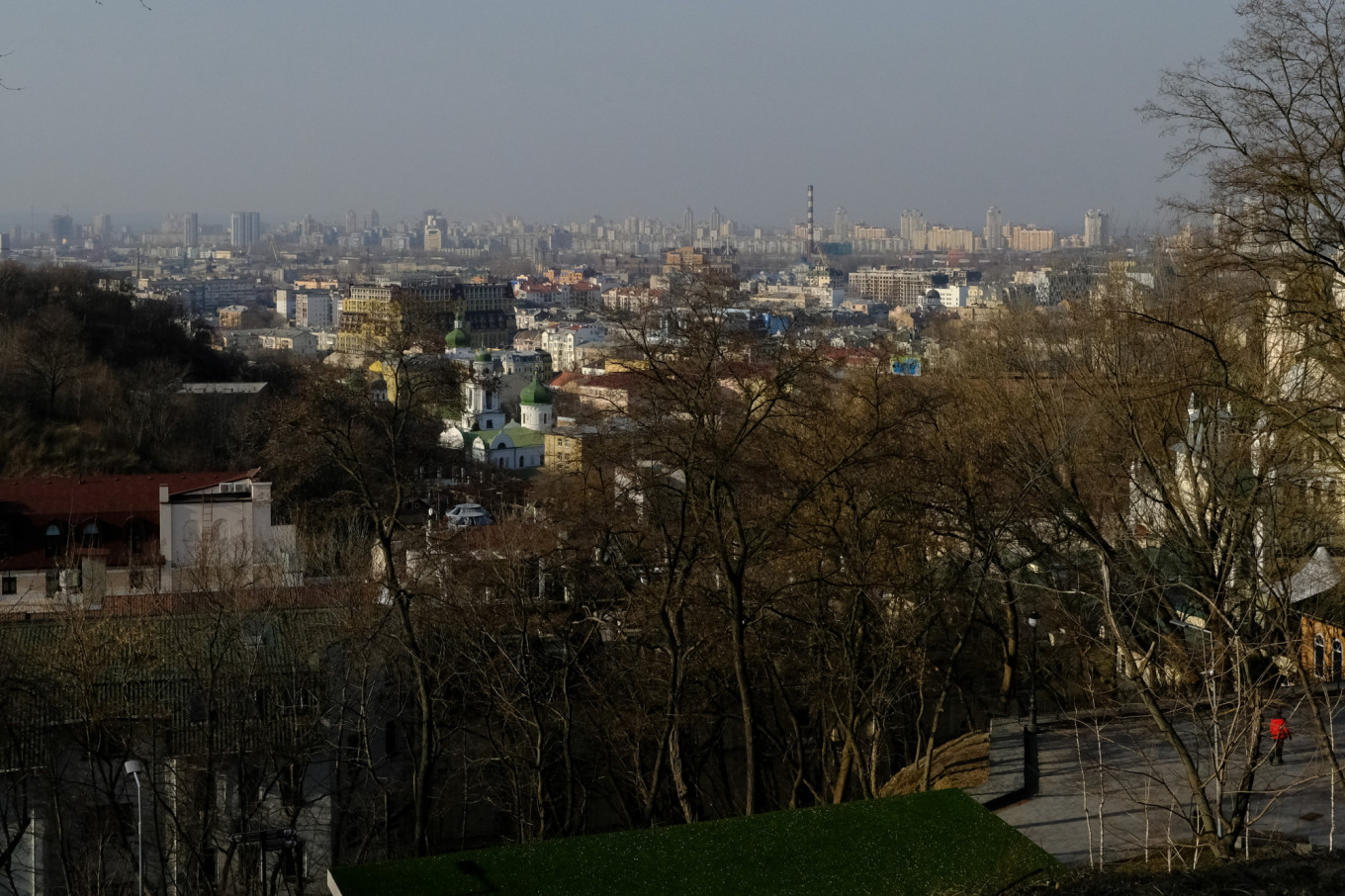
“One guy who came in had some really nice pictures on expired film with this cool pinkish tone. He shot people in bomb shelters and at the station,” said Yaremchuk.
The slow shift from bomb shelters to the streets has been particularly apparent in Kyiv’s metro, where scenes of underground stations packed with masses of people during air raid alarms are a thing of the past.
The stations are now mostly inhabited by the homeless. With train services still limited, donated clothes pile up by the ticket gates, and the soup prepared by volunteers at the humanitarian stand usually goes cold before it is eaten.
Retired teacher and amateur filmmaker Valentina Orel, 68, spent the best part of the war in a metro station. Now, she is packing her bags to head back to her native Dnipropetrovsk region, which lies to the south-east of Kyiv and is much closer to ongoing fighting with Russian forces.
Orel had been waiting for news from her daughter Yulia, who was volunteering in the leafy suburban town of Irpin when it was occupied by Russian troops. Having finally received word that Yulia is safe, Orel was getting ready for both of them to leave.
“A lady asked me today if I was going to Poland,” Orel said. “Of course not! I am going to my homelands, to sow and to harvest. They can bomb our cities but they can't bomb every inch of our land. This is how we resist.”
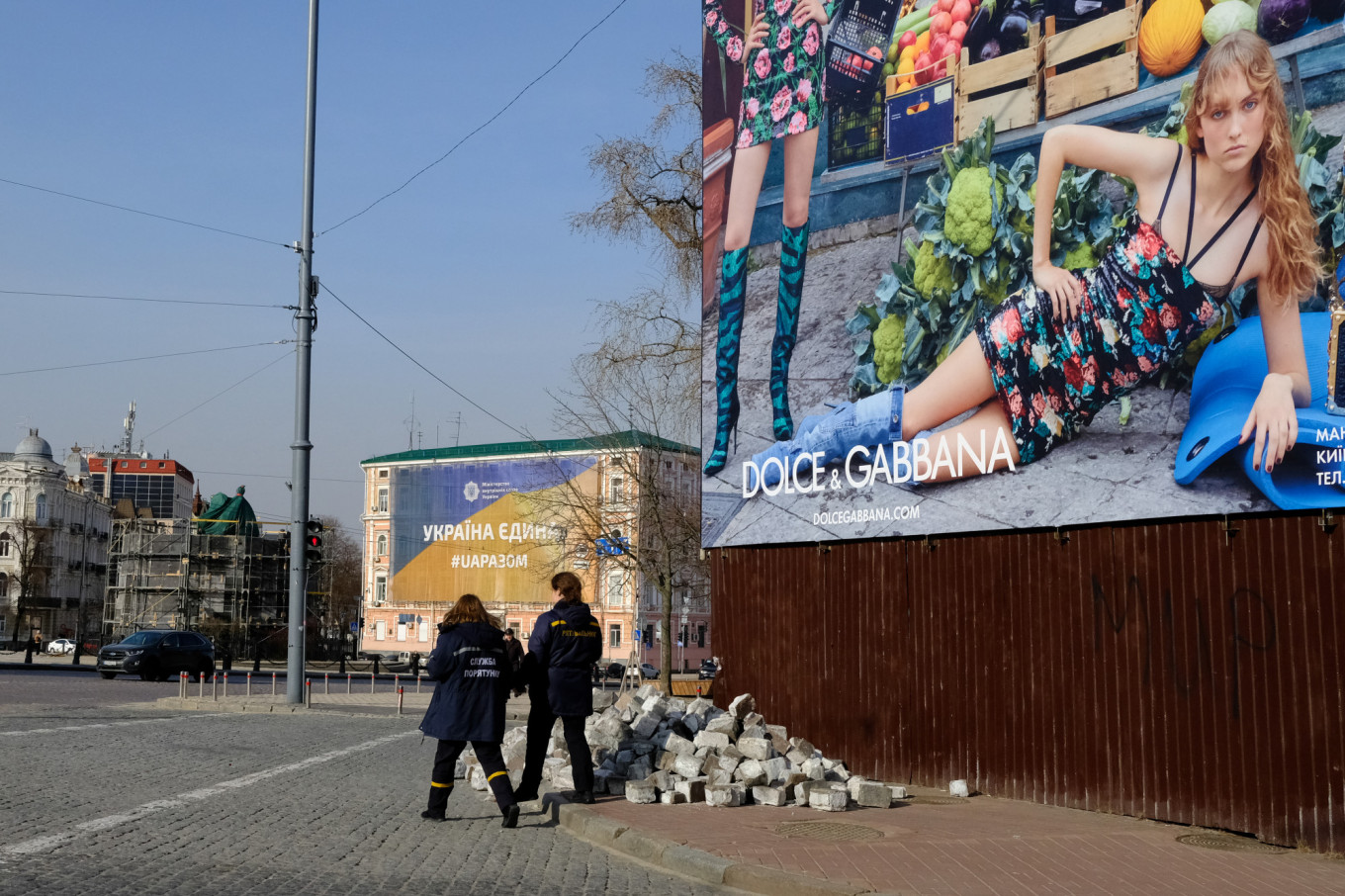
After Russian Deputy Defense Minister Alexander Fomin announced a “drastic reduction in military activity in the Kyiv and Chernihiv regions,” Russian forces fully retreated from the Ukrainian territory they had seized in the opening weeks of the war in the north of the country.
Journalists with the advancing Ukrainian troops found a grim trail of death and despair in the areas liberated from Russian control, with evidence of war crimes including the summary execution of unarmed civilians.
While Kyiv looks to be free from any threat of immediate occupation by Russian forces, a missile strike Friday on the railway station in the eastern city of Kramatorsk is testament to the fact that any target can be hit at any time, military or civilian.
“Of course we understand that we are never 100% safe,” said Yaremchuk. “Our safety really depends only on how aggressively-minded the enemy is: the angrier their mood, the more likely that something worse will happen.”
Both public messaging from the Kremlin and the reality on the ground now point to an imminent Russian offensive designed to encircle Ukrainian forces in the east of the country.
Shevtsov, who made a habit of listening to the fighting near Kyiv, is confident the Russian army will make no further territorial gains anywhere else in the country.
“Every centimeter that they advance further will be hell for them”, Shevstov said. “Their little adventure didn't go well for them at all.”
Nor does Shevstov see much value in further peace talks with the Kremlin.
“I think this can only end with the complete collapse of Russia,” he said. “From the mess they have got themselves in, there is simply no way out.”
A Message from The Moscow Times:
Dear readers,
We are facing unprecedented challenges. Russia's Prosecutor General's Office has designated The Moscow Times as an "undesirable" organization, criminalizing our work and putting our staff at risk of prosecution. This follows our earlier unjust labeling as a "foreign agent."
These actions are direct attempts to silence independent journalism in Russia. The authorities claim our work "discredits the decisions of the Russian leadership." We see things differently: we strive to provide accurate, unbiased reporting on Russia.
We, the journalists of The Moscow Times, refuse to be silenced. But to continue our work, we need your help.
Your support, no matter how small, makes a world of difference. If you can, please support us monthly starting from just $2. It's quick to set up, and every contribution makes a significant impact.
By supporting The Moscow Times, you're defending open, independent journalism in the face of repression. Thank you for standing with us.
Remind me later.


